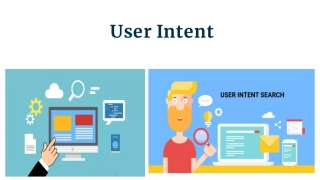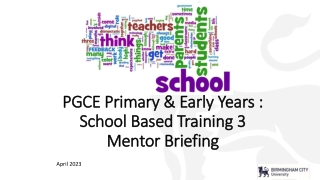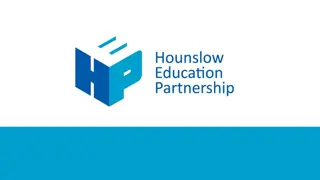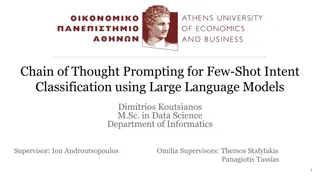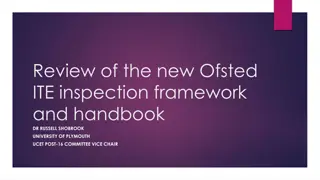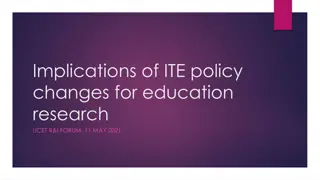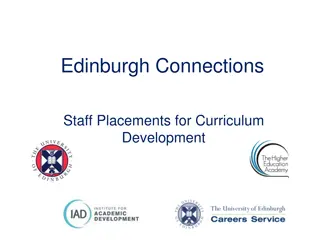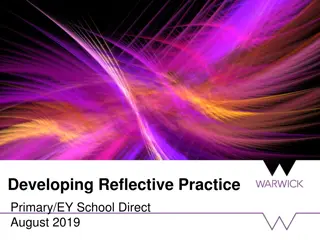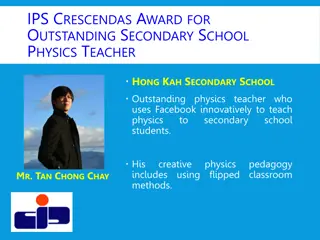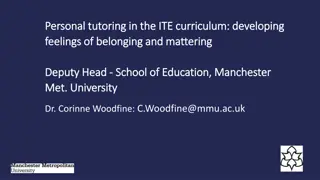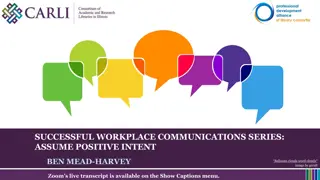
Transformative ITE Curriculum Intent at School of Education and Professional Development
Our Secondary ITE Partnership PGCE program at the School of Education and Professional Development focuses on empowering partnerships, personalized support, and transformative learning experiences. Our mission is to develop professional educators committed to inclusivity and continuous personal development. We aim to cultivate teachers with holistic understanding, evidence-based pedagogy, and strong subject knowledge who become engaging practitioners and autonomous professionals. The ITE curriculum emphasizes creating supportive environments, evidence-informed pedagogies, and responsible safeguarding practices while promoting high expectations for all learners.
Download Presentation

Please find below an Image/Link to download the presentation.
The content on the website is provided AS IS for your information and personal use only. It may not be sold, licensed, or shared on other websites without obtaining consent from the author. If you encounter any issues during the download, it is possible that the publisher has removed the file from their server.
You are allowed to download the files provided on this website for personal or commercial use, subject to the condition that they are used lawfully. All files are the property of their respective owners.
The content on the website is provided AS IS for your information and personal use only. It may not be sold, licensed, or shared on other websites without obtaining consent from the author.
E N D
Presentation Transcript
Secondary ITE Partnership PGCE Secondary Curriculum School of Education and Professional Development sepd@hud.ac.uk Social Media: @eduhuduni #TeachHud
Our values Our Values Empowering partnerships Commitment to developing our knowledge and expertise Providing personalised support for trainees and mentors Transformative learning experiences for trainees and pupils Inclusion and social justice
Mission Statement Our Mission Our Initial Teacher Education programmes develop professional educators whose purpose is to transform the learning and life opportunities of the children, young people and adults with whom they work. Through inclusive practice, reflection and commitment to continuous personal development our trainees are empowered to become autonomous practitioners who enable all learners to realise their potential.
Our Aims To develop teachers who: Have a holistic understanding of the role of a teacher both within and beyond the classroom, and a strong moral purpose for teaching Use inclusive teaching techniques and philosophies Use evidence based pedagogy Have strong subject & curriculum knowledge and see their professional learning as a continuous journey beyond their training year Apply reflective and critical thinking to their teaching Are effective and engaging practitioners Become autonomous, confident professionals who are able to make informed decisions in partnership with other stakeholders
ITE Curriculum Intent Create supportive environments Evidence informed pedagogies Professional accountability Curriculum expertise Focus and articulate high expectations for all learners How to develop a positive climate for learning through proactive behaviour management Teaching that is underpinned by care, empathy & respect Responsibility to ensure the safeguarding of children and young people Secure subject knowledge Developing pedagogical content knowledge Command of subject specific pedagogy Understanding of curriculum design and development Models of progression & age related expectations Effective assessment practice How children, young people & adults learn Planning that builds on prior knowledge & gradually increases challenge Teaching strategies that transform learners knowledge, skills and progress Adaptive practice that enables all learners to succeed Evaluate the impact of teaching on students learning Embrace the wider role of a teacher and develop effective professional relationships with colleagues Develop sustainable, critically reflective practice Value continuing professional development Justify and make informed decisions Commitment to inclusive practice and social justice Becoming Being
Behaviour Our behaviour training aligns with the 3R s model proposed by Tom Bennett and incorporates strategies promoted by practitioners such as Bill Rogers. Fostering positive relationships Handling misbehaviour Transitions Further Reading: Developing behaviour management content for initial teacher training (2016) by Tom Bennett Using student names De-escalation strategies Starting a Lesson Follow-up Positive reinforcement Ending a Lesson Involving stakeholders Sanction and reward policies Handling question & response Consistency across all students Respectful and proportionate discipline Health and safety Understanding students and their attainment data Expectations Effective motivational strategies Classroom Behaviour (2015) by Bill Rogers
How Pupils Learn Retrieval practice We align our training with learning theories and memorisation strategies encouraged by researchers such as Robert and Elizabeth Bjork Cognitive Load Concrete examples Spaced practice Further Reading: https://www.learningscientis ts.org/ Interleaving Dual Coding https://bjorklab.psych.ucla.e du/research/
Inclusive Practice Preventing Prejudice Exploring Multiple Identities Choosing Appropriate Materials Teaching about Cultures and Religions Promoting Social Justice Adapting and Integrating Lessons Appropriately Inclusive Education Teaching all Students Our training around inclusive practice is principled around Tanenbaum s seven principles of inclusive education Further Reading: https://tanenbaum.org/wp-content/uploads/2016/06/ED-Seven-Principles-NEW.pdf
Lesson Planning Where are they now? How do I assess them? Where are we going? What tasks (and task variance) demonstrate acquisition of that knowledge/ability? How do I get them there? Exposition | Modelling What likely misconceptions are there going to be? | Scaffold | Sequencing
Assessment Individual assessment Whole class assessment opportunities Feedback and corrective opportunities Assess Prerequisite Knowledge Effective Task Design Corrective Teaching Peer assessment Our training around assessment utilises strategies and underpinning ideas promoted by researchers such as Dylan Wiliam and Daisy Christodoulou Further Reading: Embedded Formative Assessment (2017) by Dylan Wiliam Self assessment Making Good Progress? (2017) by Daisy Christodoulou
Pedagogy Our training around general pedagogy promotes strategies and underpinning ideas highlighted by researchers such as Barak Rosenshine and Doug Lemov Further Reading: https://www.aft.org/sites/default/files/periodicals/Rosenshine.pdf Teach Like a Champion 2.0 (2015) by Doug Lemov
Assessment Flowchart Trainee prepares for the mentor meeting by reflecting on progress and ensuring Pebblepad is up to date Trainee fills in targets on PP and tutor verifies judgement outcome on Pebblpad Tutor checks evidence bundle and report and plans questions for viva Mentor and trainee discuss progress against assessment criteria Mentor fills in report and trainee uploads it to Pebblepad Trainee gathers evidence bundle and uploads to Pebblepad Trainee meets tutor for viva and discussion of targets Professional Values and Practice Module Outcomes: Pass Resit



